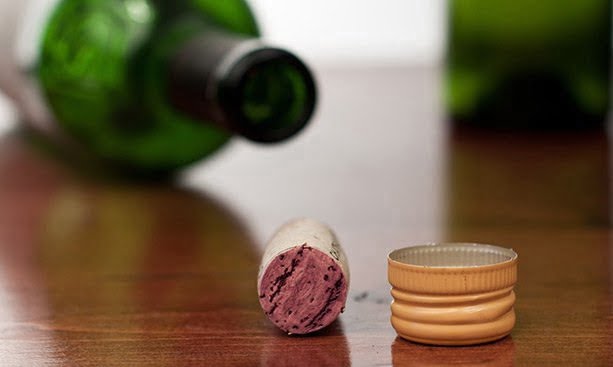Do you still question the quality of a bottle of wine based on the method of closure? Perhaps it is time to acknowledge that many of Austrlaias’ and the world’s finest wines are now produced with Stelvin and screw caps. There are a number of reasons for the change in practice from cork to mechanical fixing for closing bottles. These include the scarcity and cost of cork as well as the potential for deterioration and fungal infection of corks. While cork still has a place in the wine bottle it is no longer a closed case.
Across the wine industry it is estimated that screw caps are used on approximately one-third of the wines produced around the world each year. This rate of acceptance varies greatly from county to country and wine style. Although there is little justification for the continuity of cork in Prosecco, Champagne and sparkling wine it has remained stubbornly stuck in the neck of the bottles. The acceptance of twist-off closures for premium wine from heavy reds wines to light wines varies from country to country. In Australia and New Zealand, it’s difficult to find wines of all styles and quality ranges sold with anything but a screw cap. In many European countries such as Italy, Spain and Portugal, the dominant closure system remains the cork, both organic and synthetic.
There is still some legacy from the early emergence of screw caps on lower quality bottles. As the technology was emerging only the producers at the entry level of wine were willing to test the market with screw caps for wine storage. Some consumers still associate the quality of a wine by its closure and view screw caps as a sign of a low-quality wine. This continues to be the case in many parts of the United States where the legacy of low cost lingers in the minds of many. It is comparable to suggesting the Steel wine racking as compared to Timber wine racking, or wall wine racking as opposed to label view wine storage will affect the drinking of your wine cellar.
One of the advantages of the screw caps is to offer a lower cost alternative to natural corks, these can cost more than $1 plus each for the top-quality grade, that’s only a part of the reason that wine producers chose to look for other alternatives to them. Although synthetic corks are more economical than organic cork, the concept of wine purity is tainted by plastic against wine. For more than 40 years, screw caps have proven to be an ideal closure for preserving a wine’s freshness and flavour. These screw caps have proven effective for early consumption as well as over time in a wine cellar. Plus, there’s no need for a tool to open the bottle. The wine cellar that contains both cork and screw cap wines will store your wine equally well.
A significant reason that screw caps have flourished is because cork closures face their own quality issues. While many of the cork producers have discovered ways to protect against reactions and off flavours caused by fungal issues, brands of micro-agglomerated corks are marketed as free from taint or flavour. The existing industry data suggests that as much as 6 percent of wines bottled with natural corks show off tastes and musty aromas that negatively affect the taste of the wine. This renders the bottle undrinkable and taintes the name of the wine producer.
The instances of damage to wine increased when used for long-term aging, cork closures degrade over time and risk permitting too much air ingress over time. Innovative companies have found alternatives that protect the wine in most circumstances. In Australia, Penfolds has been developing a serviceable container with a glass-to-glass seal to ensure its collectable wines can be stored in pristine conditions. These advances of these systems for bottles in wine storage and wine cellaring increase the value of the entire wine collection as they are an assurance against tainting.
Just as we have seen innovation in the last 30 years, we will certainly see further changes. No matter which innovative, user-friendly or protective closure comes to a bottle near you next, it will have to wrestle with the bond wine lovers have with cork. Stretching back to the 18th century, the cork has been the go to save the delicious juices in a bottle of wine. The wine industry prides itself on tradition and heritage and the cork seems firmly lodged in the minds and bottles of many connoisseurs. But what it is that truly matters about a bottle of wine at the end of the day.


